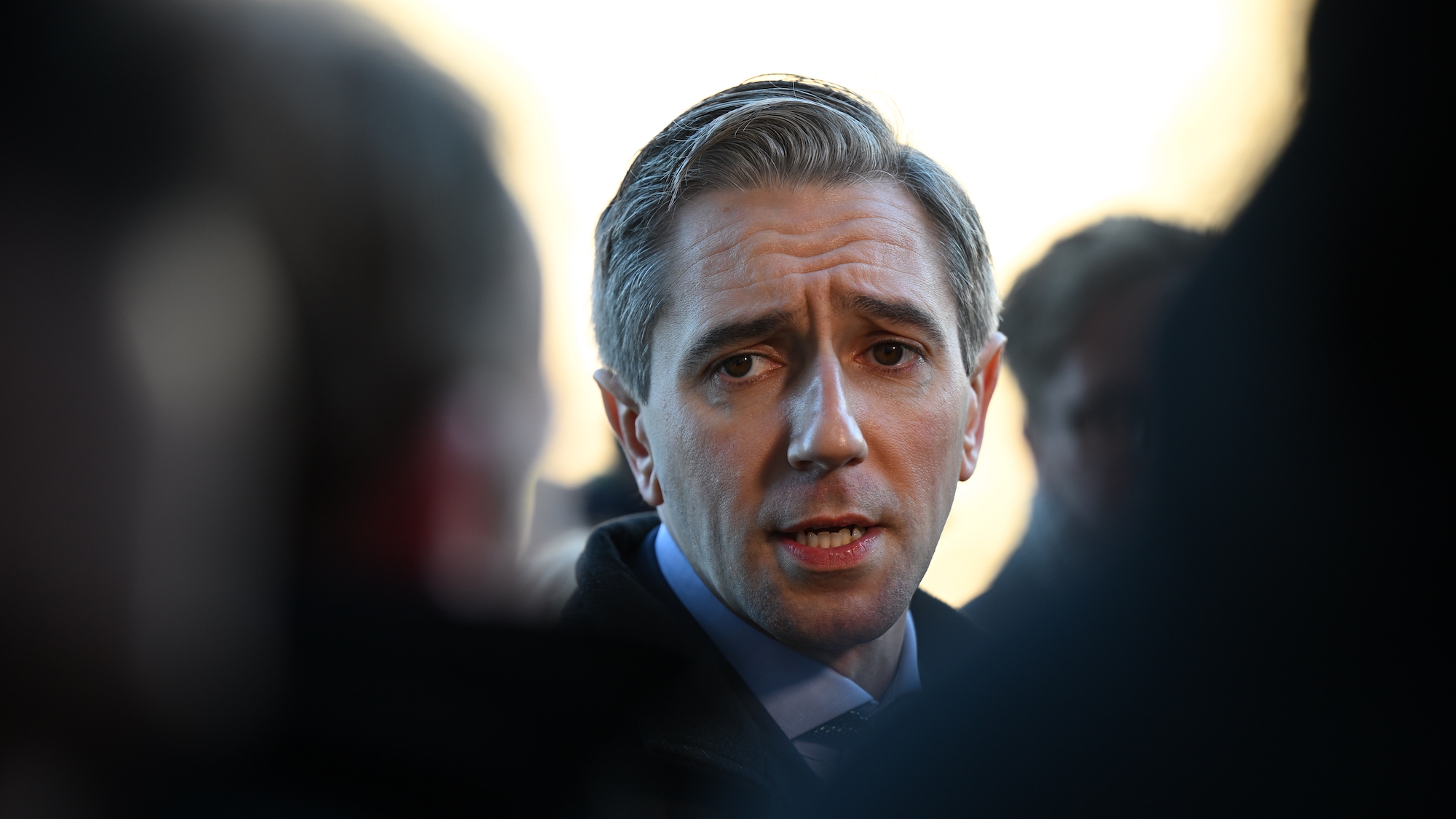Irish election: what's at stake?
Weakened centrist coalition of Fine Gael and Fianna Fáil parties may have to share power with conservative independents

A free daily email with the biggest news stories of the day – and the best features from TheWeek.com
You are now subscribed
Your newsletter sign-up was successful
Irish citizens will go to the polls on Friday to choose a new government, and it's far from certain who will lead the next administration
With days to go, the incumbent centrist coalition of Fine Gael and Fianna Fáil, led by Taoiseach Simon Harris, looked set to regain enough votes to continue in power. But a "brusque exchange" between Harris and a voter on the campaign trail has really "churned the waters", said Mark Landler in The New York Times.
In an election likely to be defined by issues of immigration, housing and jobs that could result in a bigger-than-usual vote for independent candidates, it may well be some time before the make-up of the next government is known.
The Week
Escape your echo chamber. Get the facts behind the news, plus analysis from multiple perspectives.

Sign up for The Week's Free Newsletters
From our morning news briefing to a weekly Good News Newsletter, get the best of The Week delivered directly to your inbox.
From our morning news briefing to a weekly Good News Newsletter, get the best of The Week delivered directly to your inbox.
What did the commentators say?
Given Ireland's unusual proportional-representation voting system, candidates are elected "slowly", said David Blevins and Conor O'Neill at Sky News. And, with no party having "fielded enough to win a majority", there will certainly be a coalition government.
This "peculiarly Irish race" favours Fine Gael and Fianna Fáil, the parties that have "produced every prime minister" since 1922, said Shawn Pogatchnik at Politico. "The two big legacy parties," said Melanie McDonagh in The Spectator, "manifestly have more in common than not."
Sinn Fein has "gained momentum" but is "limited by a lack of coalition partners", said Jill Lawless at The Washington Post, just as it was when it won the popular vote in 2020. It has also recently "been dogged by a series of allegations of inappropriate behaviour", said The Guardian's Justine McCarthy. It is unlikely to find an ally among the two big parties, who are wary of its "leftist policies and historic links to the Irish Republican Army", said Lawless.
All three parties are likely to feel the heat of some voters "turning on them" in favour of one of "several smaller parties" and an "assortment of independents" who have all taken up positions away from the centre ground.
A free daily email with the biggest news stories of the day – and the best features from TheWeek.com
Sinn Fein, in particular, is being "stung by the anti-immigrant sentiment" that has swept Ireland. Its leaders, having "largely shunned the nativist language of populist and right-wing parties", are seeing some of their base "peeling away" to independent and fringe candidates, added The New York Times' Landler.
For Fine Gael and Fianna Fáil, there's likely to be backlash over their perceived lack of answers to the housing crisis. This is "among the main concerns of voters", with many "basing their first-preference intentions" on party stances on this issue, said Jade Wilson and Conor Pope in The Irish Times.
And, for Fine Gael, it could be Harris' "moment of Veep-grade awkwardness" on the campaign trail that weakens them most, and unseats him as Taoiseach, said Pogatchnik at Politico.
What next?
Whoever is able to form a coalition will have a slew of issues to deal with. As well as the housing crisis, high prices and the cost of living remain "a key concern", said Jon Henley in The Guardian.
Then there's healthcare funding, the "hot-button" issue of immigration, and the "less vexed" question of how to spend the €14bn of tax money coming to the country from Apple after an EU high-court ruling.
Any election result leaves Irish politics in a "strange blend of continuity and flux", said Eoin Daly on The Conversation. While the recent coalition governments have kept a "façade of relative stability", the nature of the electoral set-up points to a "longer-term trend towards discord and disintegration" – something that will be "familiar across much of the European continent".
The most probable outcome is a Fine Gael/Fianna Fáil coalition, in tandem with a smaller party. All the independents together "could get up to a fifth of the vote", said The Spectator's McDonagh, and any conservative independents who sign up with a Fianna Fáil / Fine Gael coalition "may be the tail to wag the government dog".
Taoiseach Simon Harris, says McDonagh, may get "more than he bargained for" in calling this election.
Richard Windsor is a freelance writer for The Week Digital. He began his journalism career writing about politics and sport while studying at the University of Southampton. He then worked across various football publications before specialising in cycling for almost nine years, covering major races including the Tour de France and interviewing some of the sport’s top riders. He led Cycling Weekly’s digital platforms as editor for seven of those years, helping to transform the publication into the UK’s largest cycling website. He now works as a freelance writer, editor and consultant.